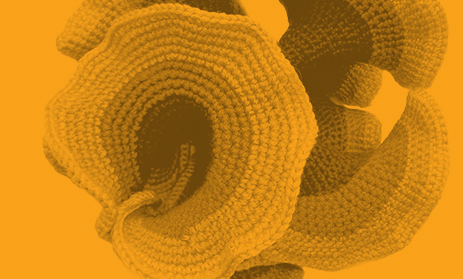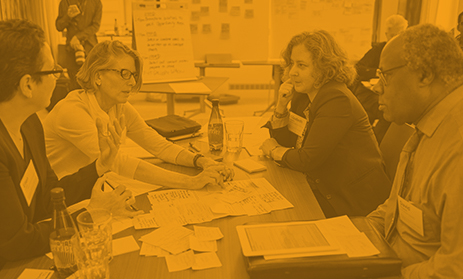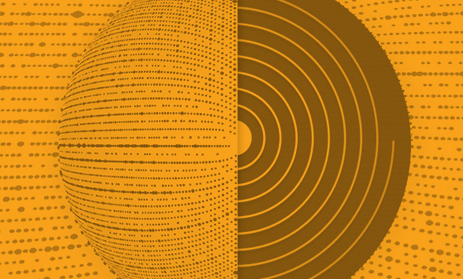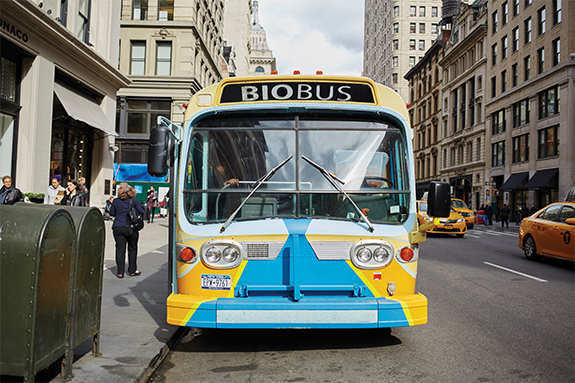
A tiny crustacean called Daphnia wriggles across a TV screen. Its legs twitch and its sub-millimeter-sized heart beats rapidly. Such an intimate look at the critter's insides makes it easy to imagine that you're in a high-tech biology lab at one of New York City's top universities. But this is no ordinary laboratory: It's a bus — the BioBus.
The BioBus is a mobile science lab created to show the public that everyone can be a scientist in his or her own way, says Sasha Chait, director of development for Cell Motion Laboratories, which operates the mobile lab. It is a 1974 New York City Transit bus that Ben Dubin-Thaler, founder and executive director of BioBus, bought in 2007, gutted and refurbished with $100,000 of research-grade microscopes.
Since the bus opened its doors in 2008, it has hosted hundreds of thousands of students, from schoolchildren around New York City to curious children and adults living in cities across the country. Students climb aboard BioBus and are immersed in a world where they can experience science in a way they never have before, Dubin-Thaler says. They work side by side with professional scientists, exploring a range of questions, from how Daphnia's body works to what it looks like microscopically when paint dries.
Ben Dubin-Thaler, founder and executive director of BioBus, shows a group of students a pipette of water containing Daphnia.
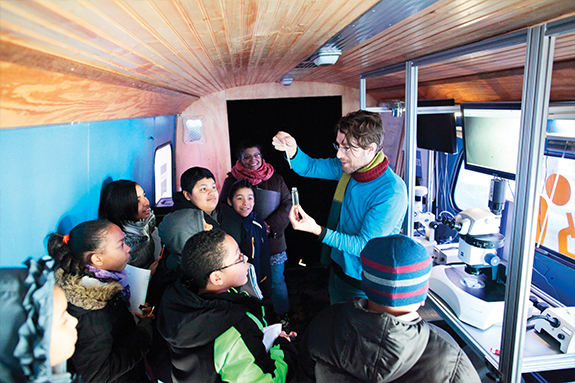
"Exciting students' curiosity for how the world works, that's the goal. And hopefully, we spark careers in science for some of them, too," Dubin-Thaler says. "We also show students that scientists can be young, can be people of color, and are really passionate about their work and interested in making the world a better place."
After building out the BioBus, Dubin-Thaler dreamed of something even bigger: a space where students could continue to pursue their scientific curiosity
after their BioBus experience. The BioBase opened in January of 2014 at the Lower Eastside Girls Club in Manhattan. Students can go there to dig deeper
into scientific questions and develop projects and ideas of their own. "We really want to empower a new generation of scientists and foster greater public
understanding of science,"
Dubin-Thaler says.
Watching students work at the BioBase is incredible, Chait says. "These kids are asking questions and going after the answers, working alongside formally trained scientists." What's even more inspiring, she adds, is to watch the kids come with their parents for Science Cafes or other public events and see the parents' curiosity get piqued as well.
With support from the Simons Foundation and other donors, Cell Motion Laboratories will begin operating a second BioBus by the fall of 2016, and a second BioBase is slated to open in Harlem in 2017. And the organization may not stop there: Dubin-Thaler, Chait and others would like to see a BioBase in nearly every New York City neighborhood. "We really want to keep going, to give more people an opportunity to be excited by science," Chait says.



